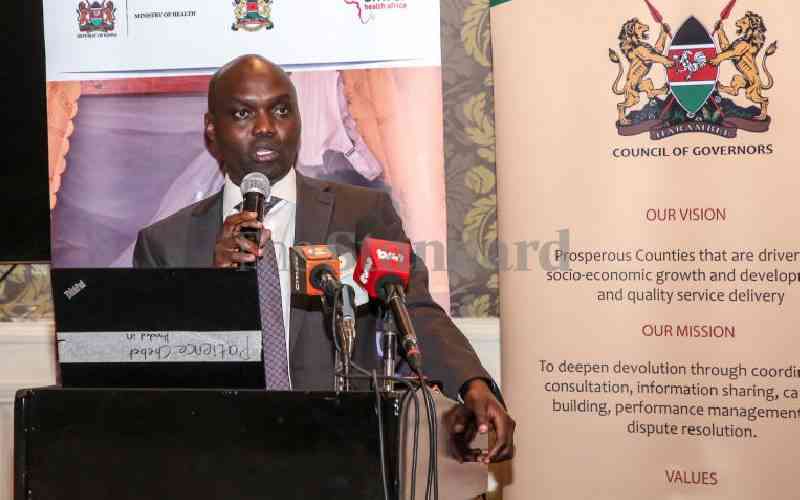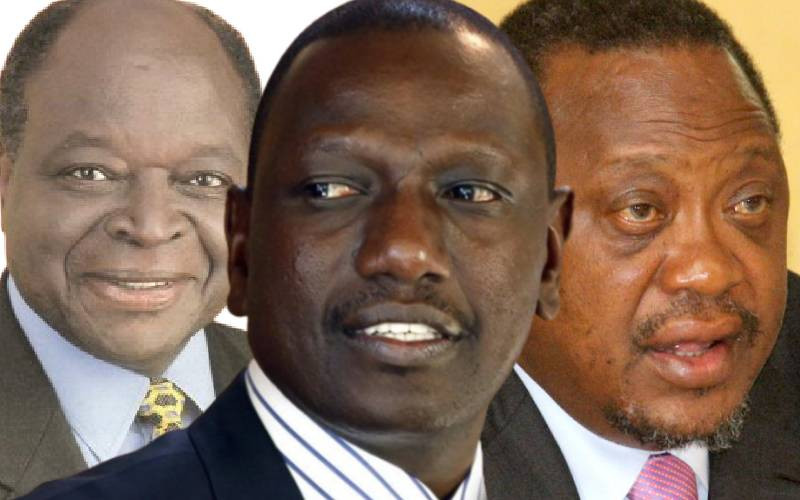By Adrian Onyando
I am not a fan of anybody or group, but my sense of fairness is very acute, exercising itself even at the risk of being politically incorrect.
In the past one year, I’ve seen one person, Mwai Kibaki, take all the credit for the achievements we have made in the past one decade or so. I’ve also seen one person, Raila Odinga, take all the blame for our failures of the past one decade or so.
Paradoxically, Raila Odinga is accredited with destroying autocratic dispensation that had put Kenya in a social and economic coma for over two decades. For me, however, the fact remains that Raila single-mindedly fought and achieved the democratic space that we now enjoy.
In the last five years, I have seen him represent the face of government in its policies and implementation; he has been the initiator and implementer, the mobiliser and activist for the New Constitution.
(It was the height of hypocrisy for the judiciary to host a luncheon for the outgoing president, and never for the outgoing prime minister.)
Above all, Raila has been the co-principal of the government. We are conveniently forgetting that he held the ‘half loaf’; we are revising history to read that he had no loaf at all. Why?
The reasons are not far to seek. He’s not politically correct; his values do not resonate with the powers that underlie the Kenya government since independence.
No doubt, the humiliating treatment of Raila Odinga is a testimony to the deeply entrenched tribalism in our social and moral fibres.
But it goes even deeper than that: it shows the corruption that has eroded our values and the deformation of heroism so that it looks like anathema to many. Historically, it shows that the collaborators have won, and freedom fighters are being told to pack up and go.
Nothing shows this better than the farewell parties we are witnessing at the moment. At the end of any term, an institution says farewell to those who have served it well.
A farewell is not an obituary, but simply a symbol of appreciation. Indeed, the Kenya government as an institution is saying farewell to Emilio Mwai Kibaki in a great way – that is as it should be – but why not to his co-principal? We are pretending he is not there and his spirit is fighting back.
I’m not a believer in mademoni, but lack of appreciation can lead to those things. Doesn’t Raila also crave for, and indeed deserve, a piece of the action? If I, a simple teacher, needs appreciation at the end of every semester, how disappointing is it for a whole Prime Minister to get none at the end of his term?
years of slumber
In this inversion of heroism, who will put his life in for the sake of this country again? In times of need, the ordinary Kenyans might say, to paraphrase the Greek playwright: ‘Shall we fight or nurse our lives, seeing that heroes have no honours?’
Stay informed. Subscribe to our newsletter
Worse still, they may decide that gangsterism, drug peddling and illiteracy pay much better in this country.
Of course, it is in the nature of those who want to murder the spirit not to appreciate. They may be leading our fingers to point mockingly to the heroes, with the warning: ‘Look how he ended up. Not even a party in his honour! Not even a name in the street!’
But we must rise up and hold a farewell party for all those who have genuinely sacrificed for the freedom of this country; those who have championed for the Second Liberation. I have talked of Raila, but he is only a symbol.
In his farewell party, all the progressive elements shall partake of the banquet of our gratitude. We are many and our contribution shall only be ten, 50 or a hundred shillings – but not more than that. If you are for this just like and share this article.
But who are ‘we’? We are the people who have enjoyed the basic human rights, like the freedom of speech and association in the past one decade. We are the people who no longer have to look over our shoulders whenever commenting even on such mundane affairs as thirst and lack of water.
We are the people who have seen the tip of development (how we wish to see more of this!); seen construction of roads, buildings rising out of years of slumber; airports coming up in new places.
We are the people who do not have to go to Nairobi to enjoy the minimal amenities of modernity.
We are the people who do not have to rush to State House for the slightest embarrassing bedroom affair – because we have representatives at the lowest levels. We are the majority who have been treated as weeds in this government garden, but now must assert our right to belong.
 The Standard Group Plc is a
multi-media organization with investments in media platforms spanning newspaper
print operations, television, radio broadcasting, digital and online services. The
Standard Group is recognized as a leading multi-media house in Kenya with a key
influence in matters of national and international interest.
The Standard Group Plc is a
multi-media organization with investments in media platforms spanning newspaper
print operations, television, radio broadcasting, digital and online services. The
Standard Group is recognized as a leading multi-media house in Kenya with a key
influence in matters of national and international interest.
 The Standard Group Plc is a
multi-media organization with investments in media platforms spanning newspaper
print operations, television, radio broadcasting, digital and online services. The
Standard Group is recognized as a leading multi-media house in Kenya with a key
influence in matters of national and international interest.
The Standard Group Plc is a
multi-media organization with investments in media platforms spanning newspaper
print operations, television, radio broadcasting, digital and online services. The
Standard Group is recognized as a leading multi-media house in Kenya with a key
influence in matters of national and international interest.







